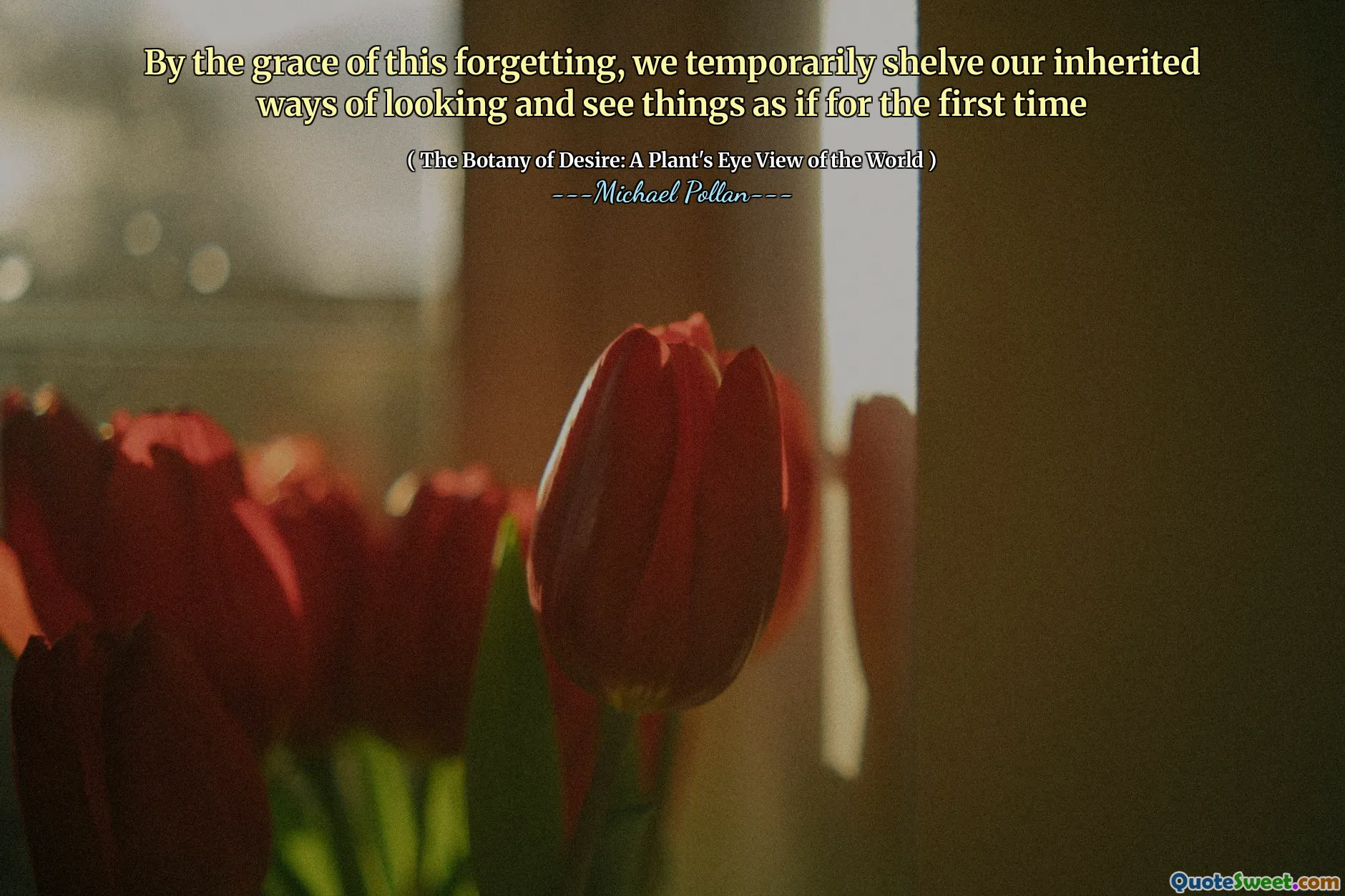
By the grace of this forgetting, we temporarily shelve our inherited ways of looking and see things as if for the first time
This quote eloquently captures the profound value of forgetting our ingrained biases and preconceived notions to experience the world anew. It suggests that our habitual ways of perceiving—shaped by culture, upbringing, and past experiences—can sometimes obscure the raw, authentic perspective that exists outside these filters. When we momentarily set aside this mental baggage, we open ourselves to a fresh and more genuine appreciation of our surroundings, allowing us to notice details and connections that had previously gone unnoticed.
In the context of the human experience, this act of forgetting is a form of mental reset or surrender that enables rediscovery and wonder. It hints at the importance of humility, recognizing that our current perceptions are limited and that opening the mind with less prejudice can lead to deeper understanding and appreciation. Such a perspective also aligns with ideas in mindfulness and present-moment awareness—where letting go of judgments and habitual thought patterns creates space for authentic perception.
The quote also resonates with the process of learning and growth. Often, true insight requires us to forget what we think we know, to let go of our prior assumptions and be receptive to alternative ways of seeing. This is especially relevant in nature and science, where innovators frequently need to abandon established beliefs to make breakthrough discoveries. By embracing this act of forgetting, we cultivate curiosity and awe, qualities essential for a meaningful exploration of ourselves and the world around us.
Overall, the quote reminds us that sometimes, to truly see, we must temporarily relinquish our inherited perspectives and approach situations withfresh eyes, embracing the possibility of wonder and discovery that comes with a little mental downtime. This practice can foster greater empathy, creativity, and understanding, enriching our human experience.
---Michael Pollan---







